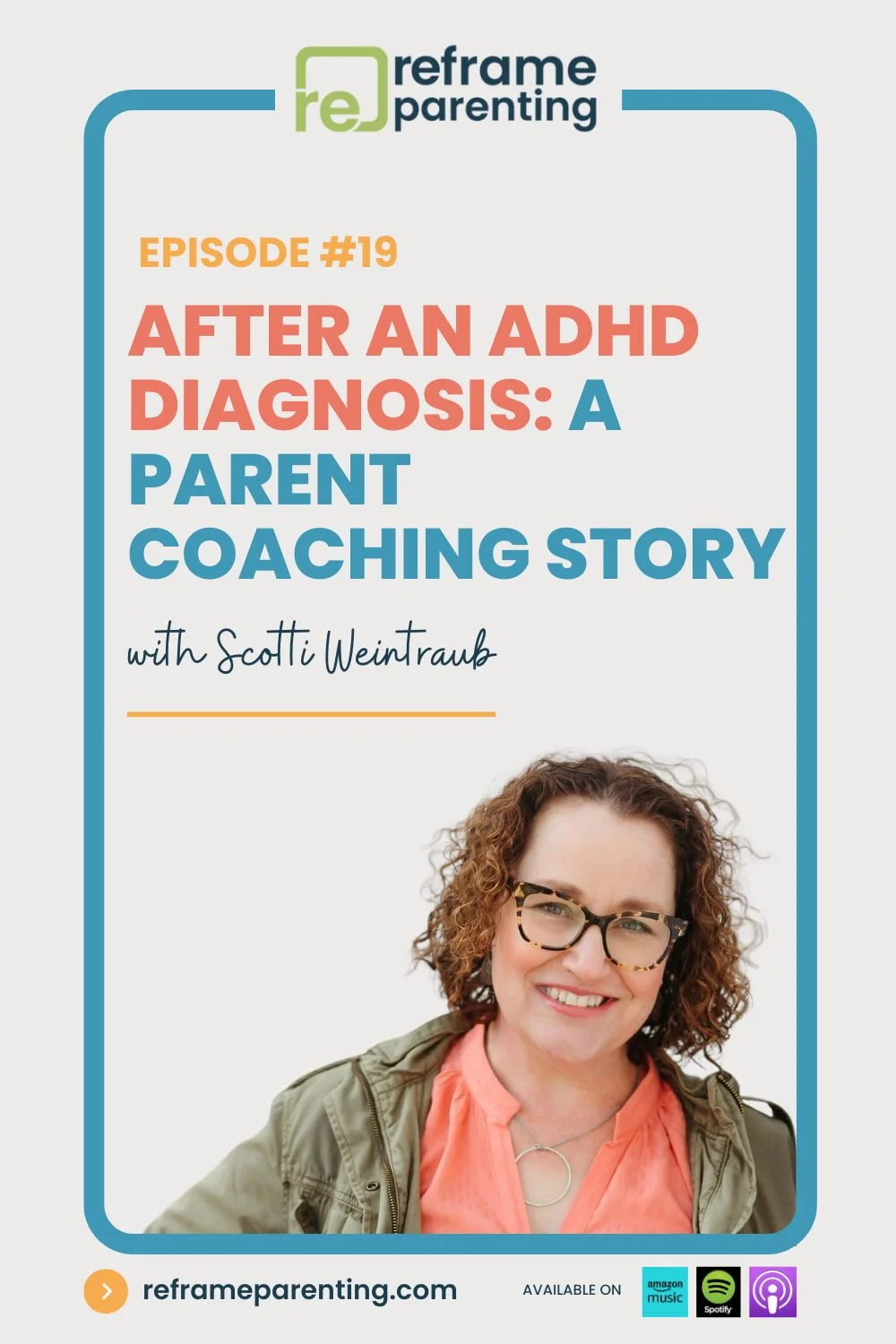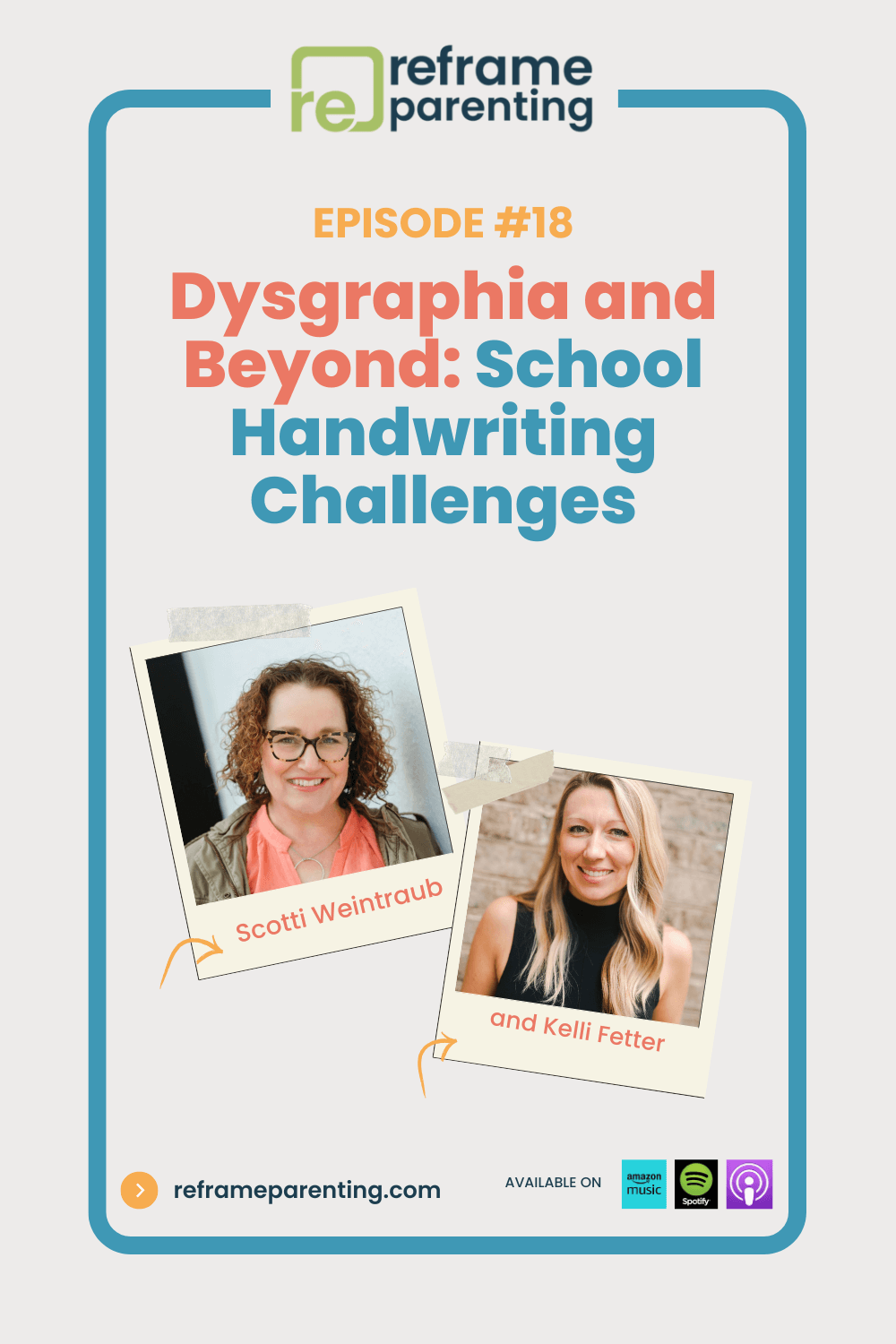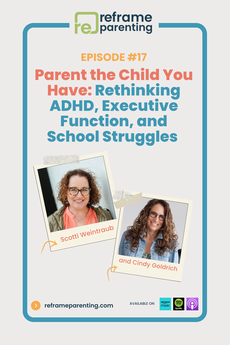13: How to Maximize Your Parent-Teacher Conference
Parent-teacher conferences may be short, but they can pack a powerful punch when you walk in with clarity and intention. In this episode of Unlocking School Success, I’m breaking down the simple framework I use to help parents get the most out of those quick meetings—without feeling rushed, overwhelmed, or unsure what to ask.
You’ll learn the “three Ps” that make conferences more productive, how to pull helpful insight from your child before you meet with the teacher, the one phrase that instantly opens up collaboration, and the small step most parents forget that can make a big difference after the conference ends.
Key Takeaways:
The “Three Ps” —Preparation, Patience, Partnership—offer a simple structure for making conferences more meaningful.
Start with your child’s perspective by asking a few low-pressure questions to understand what’s happening day-to-day.
Choose one or two priorities so you can stay focused during these short meetings.
Lead with strengths and appreciation to set a positive, collaborative tone.
Resources:
Top Tips for Successful Parent-Teacher Conferences blog post
When to Take Your Child to School Meetings podcast episode
Connect with Scotti:
Website
Instagram
Threads
LinkedIn
Ask a Question:
Got a school question on your mind?
Submit it as a listener question for a future episode
Transcript
13: How to Maximize Your Parent-Teacher Conference
[00:00:00]
It is that time of year again, where I live we are about to have parent teacher conferences, and it's something that a lot of parents might shrug off as a quick routine check-in. But in this episode of Unlocking School Success, I'm gonna talk all about how you can maximize and get the most out of these quick meetings and make them more than just routine.
Scotti Weintraub: Welcome to Unlocking School Success, a podcast with the smart strategies and support parents need to help their kids thrive. I'm your host, Scotti Weintraub, parent coach, school navigator, and your go-to guide for turning School Stress and Chaos into clear strategies that work. Let's get started.
It's parent teacher conference time, and we only get them once a year and they're really, really short. And for younger kids, that might [00:01:00] mean one teacher. You might get 15 to 20 minutes, but for older kids who have multiple teachers, each conference is only 10 minutes. Wow. That's short. And it really feels like it in the moment too.
But I'm gonna argue that if we approach parent teacher conferences with more intention and a little bit of preparation, those few minutes can be very useful. And can even open the door to better support, clear communication, and a stronger partnership with your child's teacher. So stick with me until the very end of the episode because I'm sharing one simple thing.
Parents almost never think to do after a conference, but can make a big difference. Here's the thing about parent-teacher conferences, even though they're. Too short, in my opinion. They're one of the rare moments when you as a parent and your child's teacher are sitting together alone talking about just your child, and that by itself makes them so valuable.
But that time really does go by so [00:02:00] quickly, so it helps to have a simple way to approach the meeting and something that will keep you focused and make that conversation feel purposeful. Instead of feeling so rushed, I like to break it down into three pieces that really shape how the meeting goes. I call them the three Ps.
The first P is preparation.
Preparing for this is where you can really maximize the impact of a parent-teacher conference because a short meeting becomes meaningful once you walk into it already with a plan of what you want to discuss and how you're gonna make the most of those few precious minutes. So in terms of preparation, I'm gonna encourage you to start by talking to your child.
And this doesn't have to be high pressure. This can be casual conversation in the car, after school. Doesn't really matter as long as they're open to having a short conversation. But you just wanna get insight from them because it's so challenging when you are a parent and you're not [00:03:00] in the school building.
You don't really know what's happening, aside from what you hear from your child who may not report back very much, or when you get those emails from teachers where they express concern or something has gone wrong or they need your assistance with something. So we just want to gain a little more insight into what is actually happening in the classroom.
And with that, we're gonna ask some questions of our kids. You can ask them things like. What feels really easy for you at school? What feels more challenging? Is there a particular subject that you're really enjoying, or is there one that feels more difficult? And this one I like particularly. What is something you wish your teacher knew about you?
You might be surprised at what they have to say on that one. So just gathering that information from our kids helps us think through, based on what we already know, what might be the most important thing to talk about at that conference. And because these are so [00:04:00] time limited, I'm gonna encourage you to just pick one or two priorities.
Now, write down your questions. Even write all of them that you may have because you don't wanna forget them in the moment, but know that you might not get to all of them. And so we're gonna prioritize, what feels the most pressing. It can either be what is the most urgent because, you know, there's a challenge or, an issue that needs to be addressed.
Or it could be what feels like an , the low hanging fruit. What feels like an easy thing for me. To make a difference about. So pick your priorities, write down your questions so you don't forget, and this will also help you to feel more calm in the moment.
I think that open-ended questions are always a great place to start. And if you've listened to any of my other podcast episodes, you might have heard me tell you that my favorite phrase to use is, I wonder because I feel like it takes the weight off of some of [00:05:00] these conversations. There's no accusation.
It's not pointing out a negative, it's just offering up a conversation. So if you say, instead of. My son is just refuses to turn in his homework. Instead, if we say, I wonder why he isn't turning in his homework, then that leaves the conversation open to get input from the teacher in that moment for you to reflect on, I wonder what might be happening that is keeping him from turning in that homework, whatever the, the situation might be.
But it just takes some of the pressure off. So remember that phrase. I wonder, and here I'm gonna tell you in terms of preparation, I want you to also think about some positive things you want to mention. Sometimes, especially if your child has had a hard time at school, there can be a lot of negativity in these conversations.
All about the problems, the challenges, the behaviors, and. I think it's important to talk about positive things too. So in your preparation, think about what is one thing I really want the teacher to [00:06:00] know about my child, what makes them really interesting or fun, or something that they are particularly interested in.
I find that starting conversations with positivity also just sets a really great tone. Expressing your appreciation for something that might be happening in the classroom. Also, a great way to set the tone. If there's something that your child's really been engaged with or interested in that they've been learning at school, now's the time to mention it.
And that will encourage the teacher also to be thinking about strengths and not just weaknesses. So that gets me to my second P patience. And that doesn't mean just with teachers in that meeting. It also means with ourself and with the the bigger school system, because yes, it's true that parent-teacher conferences are short.
So we need to be patient about just the reality of that and we need to be patient about the fact that we might not get to all of the things we wanna talk about. And that's just also natural. That's us trying to be patient with the [00:07:00] process and we're gonna talk in a minute about how we can keep that conversation going.
But if we can try to be patient with this is the system that we are working within, it can help take some of that pressure off too.
Schools, you know, they move slowly. It might take time to put supports into place or to see if they're being effective. And honestly, teachers are juggling perhaps dozens of these conference conversations. So being patient with the process, with the school system is also super important, and it also points out the fact that.
The kind of progress we might be looking for where real school support happens might not happen through this one short conversation. It may take more than one, so we'll get to that. But I wanna also mention that something that I have been talking a little bit more about lately, because I just find it interesting to think about the fact that when we as parents go into a meeting where at school, [00:08:00] whatever that may be, and in this context we're talking specifically about parent teacher conferences, but when we go to those meetings, we're coming in a very personal capacity.
We want our child to be seen and appreciated and encouraged for the great, amazing, smart, funny, capable kids that they are. But teachers are coming to those meetings in a professional capacity, and I don't say that that it's a negative. It's just the reality. And so I think it's important to sometimes just note that.
Especially if we're feeling emotional in the moment and talking about these things to remember that they don't have as much emotional buy-in to that situation as you do perhaps. Which brings me to the third P, which is partnership. What we're really trying to do is to bridge the gap between those different dynamics of all of the players coming into the situation and develop a true partnership.
So if this is your first chance to have talked [00:09:00] with your child's teacher this school year, that's okay, but let's. Make the most of it. Let's use that as a springboard to further conversations and further collaborations to best help our kids. So that's where this conference becomes more than just a meeting.
It becomes a true relationship. I like to use we language to let teachers know that we are, in fact, on a team. We are here to achieve the bigger goal. And the bigger goal is always to help. This particular child we're discussing have the best possible school experience and to provide them the supports that they need in order to achieve that.
So if we talk about it as if we're a team and that takes out any blame, any sense of
Finger pointing that may come up. We want to be seen as partners. That's our job is to model that in those meetings too, and we're assuming good intent. We know that teachers have a lot on their plates. [00:10:00] We know they might have had whole bunch of meetings prior to ours, so we just assume that if they need more information, we're going to provide it.
We assume that they want what's best for our kids, and we wanna make clear that we want to make their jobs easier. Because ultimately, sharing the information that we have gathered about our kids, what we know about how they learn, and how they think actually does make teachers jobs easier, and that any teacher will appreciate.
So I also like to try to remember, especially at conference time, to show appreciation. And I mentioned before that we wanna talk about strengths and good things that are happening, but I think a little thank you goes a long, long way, especially if that teacher has been sitting at that desk for hours already having.
Conferences over and over and over again. So just saying thank you so [00:11:00] much for taking the time to talk with me. I know you've had a long day and it means a lot to me, simple and impactful, and it builds a lot of goodwill. I also sometimes, if I remember, like to bring a treat for a teacher or, a thank you note that your child has written, just those little things can make a big difference.
But I think the, best tip for ending a meeting is to clarify next steps before you leave. Even if you're rushed at the end. It's worth asking something like, well, we didn't get to everything today, and I understand, but can we schedule a follow up because I think we, might wanna keep talking about this.
That just opens that door to let them know that you wanna continue to have the conversation, that you have more you want to share and that you want. To continue to try new strategies. So I encourage you before you leave, if you can, to just get that follow up on the calendar. Does that mean an afterschool [00:12:00] meeting?
A phone call in the evening that you can schedule? If that's what the teacher would prefer, whatever works best for them, but just make that plan before you leave. ' cause it keeps that momentum going. I like to as well when I get home, just share a little bit with my child about what we covered in the conference.
They generally don't like knowing that people are talking about them if they're not there, and it can just sort of take the pressure off of them thinking about what may have been discussed by just telling them and be sure and mention those really positive things that the teacher might have said too, because I, I do think those are really impactful.
Okay, so my last tip for you is the strategy that I think parents sometimes forget, but can be very, very helpful. And that's a follow-up email. It doesn't have to be long or complicated. I think just a two sentence follow-up email, either written right after the conference or maybe the next day goes a long way to doing a few different things.
So it keeps that [00:13:00] communication open. It lets them know that you appreciated their time and it allows you to clarify not just what you discussed. 'cause I think it's important to do a little summary. If they've been in tons of meetings, they might not remember what was discussed. So just a quick, as we discussed in the conference.
This is what our next step is. I look forward to meeting with you on this date. Or if you weren't able to schedule, can we come up with a time to follow up? So it's great reminders for everyone. It gets it in writing so that you can always go back to it so no one gets lost in the shuffle and it's one small action that can have a big impact in creating that third P, the partnership that will hopefully follow through for the rest of the school year. So parent-teacher conferences might be short, but if we bring these three Ps, the preparation, the patients and the partnership, they can become the beginning of a strong parent and school relationship. [00:14:00] And that can mean a better school experience for the rest of the year for your child.
If you need help getting ready for this meeting, I'm gonna link in the show notes to a blog post I did with some more specific questions you can ask your child before you go to the conference. And I know I get this question sometimes too. What if school encourages or even requires my child to come to a school meeting, or in this case a conference?
Does that feel like the right choice or not? I've got a whole podcast episode about that very thing, so I'm gonna link in the show notes also to episode number seven, where I discuss that very topic, when to take your child to school meetings, when it's the right time, and when it might be not the right time.
With that. I appreciate all of you listening in. I hope that you too are able to maximize your parent-teacher conferences, not just for the short term, but for that long term partnership with our teachers. Thanks for joining me today, [00:15:00] and I'll see you in the next episode.
Scotti Weintraub: Thanks for tuning in to Unlocking School Success. If you're finding these episodes helpful, please hit follow, leave a review, or send it to another parent who's also navigating the school maze because no one should have to figure this out alone. You'll find full show notes at reframeparenting.com/podcast and you can come say hi on Instagram @ReframeParenting.
Thanks again for listening. See you next time.








